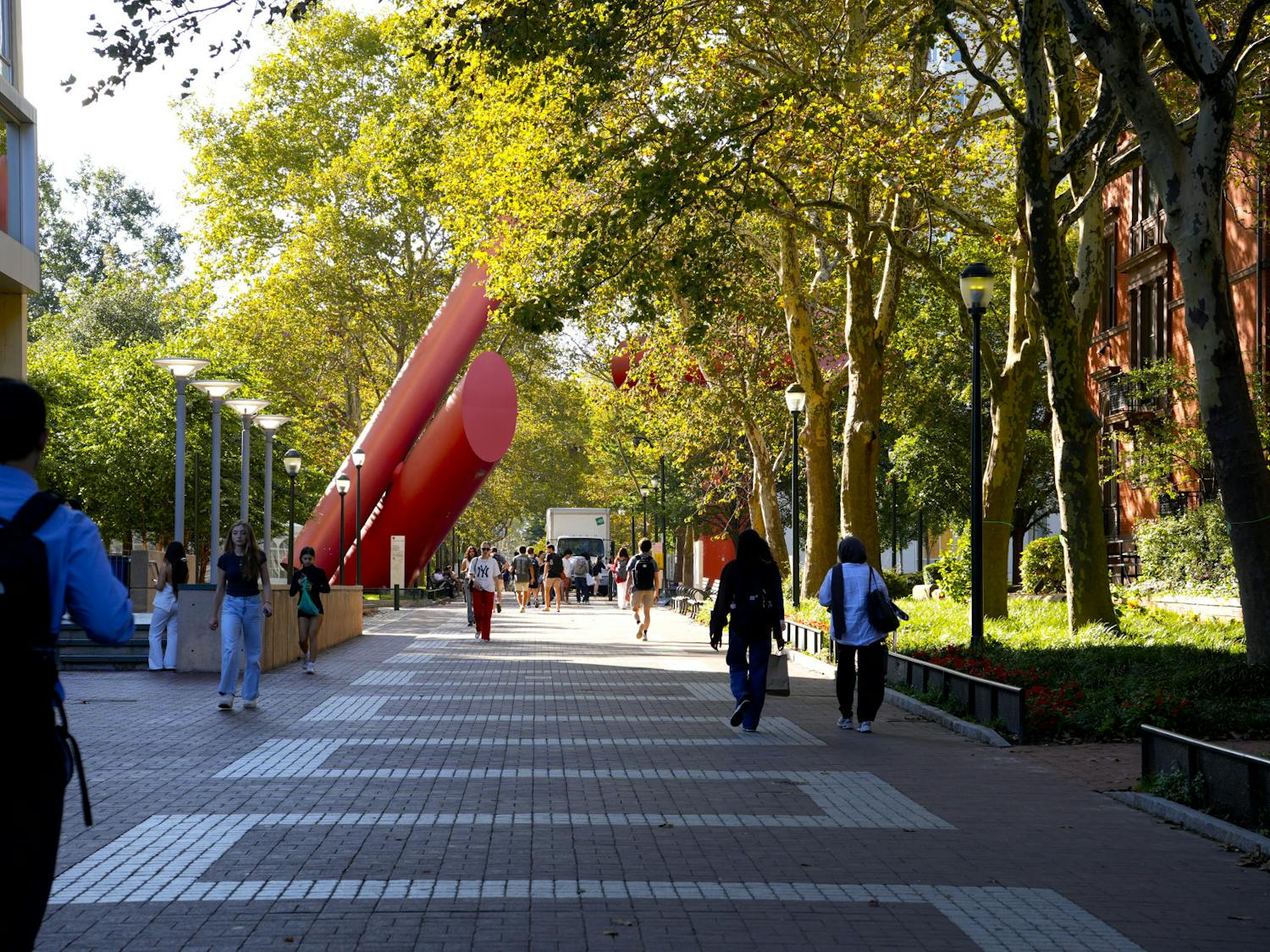PAGE's annual “Body Reclamation Week” broadened its focus this year to include programming that centered on systems that strip women of their bodily autonomy — a shift from previous years' "Love Your Body Week."
Penn Association for Gender Equity Chair and College senior Tanya Jain said the name change reflects a new focus on the institutions rather than simply telling women to love their bodies. She said the programming evolved to include more discussion-based events.
The week, which aims to address ways women can reclaim their bodies after their autonomy is taken away, featured documentary screenings, workshops, and discussions on bodily autonomy, fatphobia, ableism, and trauma.
“Generally, as the umbrella group on gender, a lot of our work is about bringing awareness to discussions,” College sophomore and PAGE board member Serena Martinez said. “We try to cover topics that we think aren’t discussed on campus as much. We try to choose topics to center the experiences of people who don’t get the attention they deserve.”
The first event was a Monday evening screening of “Death by Delivery,” a documentary which explores maternal mortality among black women, followed by a discussion of medical discrimination more generally.

(Left to right) PAGE board members Margaret Zheng, Tanya Jain, Cami Doo, Serena Martinez, and Chandni Shah.
PAGE brought sex educator Jazzmin Boyd to talk about fatphobia and the ways diet culture and health care are implicated in the topic. At the Wednesday panel on ableism, Penn students with disabilities spoke about their experiences and discussed allyship.
College junior Elizabeth Kim went to a panel on "Deconstructing Ableism" at the Penn Women's Center Wednesday — the first disability discussion she has attended at Penn.
RELATED:
Penn pledges action in response to AAU survey results — but students demand more
Penn Dems and PAGE unite for the third annual Women’s March on Philadelphia
Kim, who has cochlear implants, said these discussions are vital. Kim said the discussion fostered greater understanding and helped students with disabilities feel less alone in their experience.
“I think each person with a disability has a unique experience,” Kim said. “Each person [with a disability] comes from different backgrounds, and I think some of them are bad at asking for help. But I also feel like people who don’t have disabilities don’t know how to approach people with disabilities because they don’t want offend them. I feel like when that happens, there’s a gap and nothing happens.”
The final event took place on Friday and focused on recovery from sexual trauma, providing a space for survivors to discuss the effects of trauma on their bodies. The 2019 Campus Climate Survey on Sexual Assault and Sexual Misconduct, released in October, found that one in four undergraduate women at Penn experienced unwanted sexual contact since entering college.
“There’s not a lot of resources and programming at Penn that says, as a survivor, how do we become more comfortable with our bodies after we experience violence,” Jain said. “A lot of violence prevention is looking at education for perpetrators. I think it’s really important that PAGE is looking at how we support survivors.”









